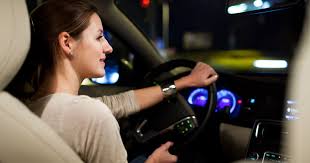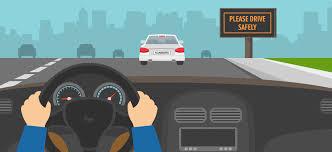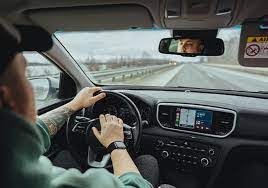Can I Get Driving Licence Without Test in West Bengal? What Skill is Important in Driving?
Driving Licence:
No, you cannot obtain a driving license without taking a driving test in West Bengal or any other state in India. The driving test is a mandatory requirement to assess the applicant’s driving skills and knowledge of traffic rules and regulations.
The driving test in West Bengal is conducted by the Regional Transport Office (RTO) or the State Transport Authority (STA). The test is designed to evaluate the applicant’s ability to handle a vehicle, their knowledge of traffic rules and regulations, and their understanding of road safety.

The following is the process for obtaining a driving license in West Bengal:
- Apply for a learner’s license: The first step in obtaining a driving license is to apply for a learner’s license. The applicant must fill out an application form and provide the required documents, which include proof of age, proof of address, and proof of education.
- Pass the learner’s license test: The applicant must pass a test on the rules of the road and traffic signs. The test is conducted by the RTO.
- Practice driving: After obtaining the learner’s license, the applicant must practice driving for at least 30 days before they can apply for a driving license.
- Apply for a driving license: After 30 days of practice driving, the applicant can apply for a driving license. The applicant must fill out an application form and provide the required documents, which include proof of age, proof of address, and proof of education.
- Pass the driving test: The applicant must pass a driving test that includes a driving skills test and a road test. The test is conducted by the RTO.
- Obtain the driving license: If the applicant passes the driving test, they will be issued a driving license.
The fees for obtaining a driving license in West Bengal are as follows:
- Learner’s license: Rs. 150
- Driving license: Rs. 200-300
- Renewal of driving license: Rs. 200-300
- International driving license: Rs. 1000-1500

It is important to note that driving without a valid driving license is a punishable offense under the Motor Vehicles Act, 1988. The penalty for driving without a license can range from a fine of Rs. 500 to imprisonment for up to 3 months.
In conclusion, the driving test is a mandatory requirement for obtaining a driving license in West Bengal. Applicants must apply for a learner’s license, practice driving for at least 30 days, apply for a driving license, and pass the driving test to obtain a valid driving license. It is important to follow the rules and regulations set by the RTO or STA to ensure a smooth and hassle-free process for obtaining a driving license.
What Skill is Important in Driving?
Driving is a complex task that requires a range of skills and abilities. A good driver must not only be able to operate a vehicle safely but also be able to anticipate and respond to changing road conditions and traffic situations. In this article, we will discuss the key skills that are important in driving.

- Knowledge of Traffic Rules and Regulations: One of the most important skills for driving is having knowledge of traffic rules and regulations. A good driver must be familiar with the rules of the road, including speed limits, lane markings, and traffic signs. They should also be aware of the various traffic laws and regulations in their state or country.
- Situational Awareness: Another important skill in driving is situational awareness. A driver must be able to anticipate and respond to changes in the environment, such as other vehicles, pedestrians, and weather conditions. They must also be able to maintain an awareness of their surroundings and be prepared to react to unexpected situations.
- Vehicle Control: The ability to control a vehicle safely and effectively is another important skill in driving. This includes understanding how to operate the brakes, accelerator, steering wheel, and other controls, as well as knowing how to shift gears (in the case of a manual transmission). It also involves knowing how to handle the vehicle in different driving conditions, such as wet or slippery roads
- Defensive Driving: Defensive driving is a set of skills that focuses on reducing the risk of accidents by anticipating and responding to potential hazards. It involves maintaining a safe following distance, scanning the road ahead for potential hazards, and avoiding distracted driving. Defensive driving also includes knowing how to respond to emergencies, such as a tire blowout or a sudden loss of control of the vehicle.
- Communication Skills: Good communication skills are important in driving, particularly when sharing the road with other drivers, cyclists, and pedestrians. This includes using turn signals, making eye contact with other drivers, and knowing how to communicate effectively in different driving situations.
- Patience and Calmness: Patience and calmness are important skills for driving, particularly in traffic or other stressful situations. A driver who is easily frustrated or agitated is more likely to make mistakes or react poorly in unexpected situations.
- Focus and Concentration: Driving requires a high level of focus and concentration, as well as the ability to maintain attention for long periods of time. A good driver must be able to stay alert and focused, even during long trips or in heavy traffic.
- Spatial Awareness: Spatial awareness is the ability to understand one’s position in relation to other objects in the environment. A good driver must be able to judge distances accurately and understand the dimensions of their vehicle, particularly when parking or maneuvering in tight spaces.
- Decision-Making: Good decision-making skills are important in driving, particularly when faced with unexpected situations or hazards. A driver must be able to quickly assess the situation and make decisions that minimize the risk of an accident.
- Mechanical Skills: Finally, having basic mechanical skills is also important in driving. A driver should know how to check and maintain their vehicle, such as checking tire pressure and fluid levels, changing a flat tire, and jumpstarting a dead battery.

In conclusion, driving requires a range of skills and abilities, including knowledge of traffic rules and regulations, situational awareness, vehicle control, defensive driving, communication skills, patience and calmness, focus and concentration, spatial awareness, decision-making, and mechanical skills. Developing these skills takes time and practice, but it is essential for safe and effective driving.







